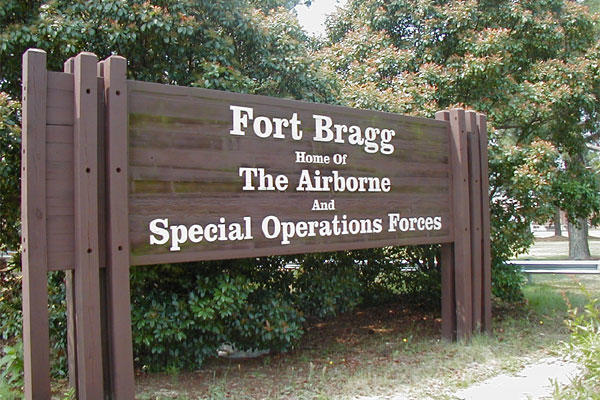Fort Bragg Military Police are continuing a criminal investigation of the startling case of the 20-year-old civilian with a long arrest record who allegedly passed himself off as an explosives expert on secret assignment and lived at the 3rd Special Forces Group barracks for several months, a spokesman said Thursday.
The review at the central North Carolina military post was separate from the just-concluded Army Special Operations investigation, which disclosed an embarrassing series of security failures that led to the individual making room assignments for soldiers and having his girlfriends make pizza and booze runs onto the post for him, said Thomas D. McCollum, a spokesman for the Fort Bragg Garrison.
The suspect, tentatively identified as Triston Marquell Chase and now known on Bragg as the "3rd FSG Squatter," would be listed as AWOL if he had been a real soldier. He failed to appear Tuesday in Harnett County Court in Lillington, North Carolina, on six civilian felony charges, including a weapons charge, the Fayetteville Observer reported.
The Harnett County Criminal Magistrate's office declined to comment to Millitary.com on whether a warrant had been issued for Chase's arrest, saying information could not be given over the phone.
McCollum said the MP investigation began shortly after Chase was picked up by Provost Marshals for drunk driving last December and was aimed at finding "any possible criminal activity associated with the 3rd SFG squatter." He said "an investigation like this is standard whenever it is believed criminal activity has taken place."
Despite the squatter appearing to have the run of the 3rd FSG barracks, McCollum said, "Our procedures for managing our barracks, approximately 17,000 bed spaces in more than 100 buildings, was reviewed by our Directorate of Public Works and it was determined to be sound."
However, all units which "manage barracks spaces and buildings were advised to review their internal standard operating procedures for their barracks," he said in an e-mailed statement.
In a separate response on the follow-up to the Army's own probe of the impostor incident, the Army's Special Operations public affairs office said, "Deficiencies identified during the investigation of the civilian living in the 3rd Special Forces Group Barracks have been corrected.
"For example, a senior Non-Commissioned Officer in Charge has been designated and trained while a Charge Quarters Non-Commissioned Officer program has been instituted" to keep watch over access to the barracks, the statement said.
"Additionally, barracks policy binders have been updated and placed in individuals' rooms" to let soldiers know who's authorized to be there, it said.
A redacted version of the Army Special Ops investigation of the squatter, obtained by the Fayetteville Observer through a Freedom of Information request, concluded that Chase was a "con artist" who had picked up just enough military slang and knowledge to dupe others into believing that he belonged.
The investigation disclosed significant safety and security issues in the management of the barracks, the newspaper reported.
A soldier, who lived in the same barracks as the civilian and loaned the civilian his car, told the Army investigators, "The barracks are horrible. Security is non-existent in any way, shape or form. There literally is none at all. There is also zero accountability for anything. Zero for rooms, people, equipment, property, etc.
"They're lucky that this guy seemed to be some sort of flake" and not a terrorist, said Lawrence Korb, a former assistant secretary of defense for personnel in the administration of former President Ronald Reagan.
Korb, a military analyst with the Center for American Progress, noted that terror groups repeatedly cite U.S. military bases and personnel as potential targets. "This guy could have caused all sorts of damage," Korb said. He said the Army must be focused now on "how did this happen?"
-- Richard Sisk can be reached at Richard.Sisk@Military.com.



























